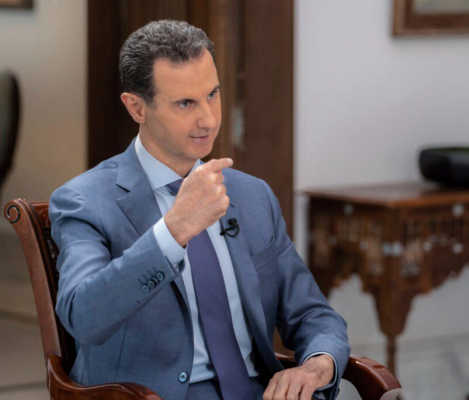Bashar al-Assad is the President of Syria, a position he has held since 2000, following the death of his father, Hafez al-Assad, who had ruled Syria for nearly 30 years. Born on September 11, 1965, in Damascus, Bashar al-Assad initially trained as an ophthalmologist in Syria and later in London, where he lived for several years before returning to Syria after the sudden death of his older brother, Bassel, in a car accident. His return to Syria marked the beginning of his political rise, and he was groomed for leadership after his father's passing.
Bashar al-Assad took office as president at the age of 34, promising reforms, greater political openness, and an improvement in Syria's economy. Initially, his leadership was viewed by some as a potential new chapter for Syria, as he made some moves towards modernizing the economy and improving relations with the West. However, these reforms were limited, and many were reversed over time.
Under Bashar al-Assad’s rule, Syria's political system remained largely authoritarian, with power concentrated in the hands of the Assad family and the Alawite sect (a minority Shia Muslim group to which the Assad family belongs). The regime maintained strict control over political life, suppressing opposition and limiting civil liberties. Assad's government has been accused of widespread human rights abuses, including the use of torture, arbitrary detention, and suppression of free speech.
The situation in Syria dramatically changed in 2011, when the country was swept by the wave of pro-democracy uprisings known as the Arab Spring. Peaceful protests against Assad's regime were met with violent repression, and the situation quickly escalated into a full-scale civil war. The conflict attracted a complex array of international actors, with the Assad regime backed by Russia, Iran, and Hezbollah, while various opposition groups received support from Western powers, Turkey, and Gulf Arab states. Over the years, the war became increasingly brutal, with widespread reports of chemical weapon attacks, airstrikes on civilian areas, and massacres.
Despite facing significant opposition and criticism from the international community, Bashar al-Assad has managed to maintain his grip on power, largely due to military support from Russia and Iran, as well as the fragmentation of the opposition. The conflict has resulted in hundreds of thousands of deaths, millions of refugees, and widespread devastation in Syria. Assad's government regained control of much of the country by 2020, though some regions, particularly in the north and east, remain outside of his control.
Bashar al-Assad's leadership has been highly controversial. While some of his supporters view him as a defender of Syria's sovereignty and a bulwark against terrorism, critics argue that he has been responsible for gross human rights violations and war crimes. His government has been accused of targeting civilian populations, using chemical weapons, and perpetrating war crimes as part of its efforts to crush the rebellion.
In recent years, despite facing international sanctions and condemnation, Assad's regime has slowly reestablished its authority, especially after key military victories and the weakening of opposition forces. His domestic power remains strong, though the broader humanitarian and economic crises in Syria continue to affect the country.
Bashar al-Assad's presidency remains a symbol of Syria’s ongoing struggle for peace, stability, and political change, and his legacy will likely be defined by the brutal civil war that has marked much of his time in power.


